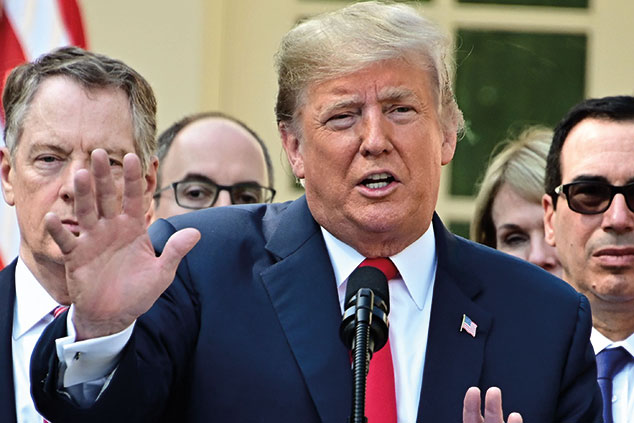
“There’s a lot to digest in the new trade agreement that the United States, Mexico and Canada finalised in deadline-beating fashion on Sunday,” says Jim Tankersley in the New York Times. Apart from the “cosmetic” change of rebranding Nafta as USMCA (United States-Canada-Mexico-Agreement) there are several “major adjustments in several key areas of the countries’ trading relationships”.
These include new rules meant to incentivise production of cars and trucks in countries that pay higher wages and “reduced barriers for American dairy farmers to sell cheese, milk and other products to Canada”. A controversial provision allowing firms to sue governments for adverse policies has been scrapped, but a trade disputes body will stay.
More relief than satisfaction
“The new deal’s main virtue is that it stows one of Donald Trump’s main protectionist wrecking balls,” says the Wall Street Journal. However, this is “more relief than vindication” since the new deal “strips protections against predatory government behaviour for most foreign investors”.
It also “takes a giant step toward politically managed trade by imposing new rules of origin and labor regulations”. For example, the measures “will add costs and complexity to building cars on the continent, and make the final products less competitive world-wide”, potentially driving production away from North America.
It’s true that “the agreement is generally the worse for these revisions”, says the Financial Times. But “severe damage has been averted”. The rules of origin regulations will “will hamper but probably not severely damage automakers’ operations”. And Canada “managed to retain a prized dispute settlement process that it has successfully used in the past to restrain the excessive US use of antidumping and anti-subsidy duties, particularly against its lumber exports”. While Trump threatened “to change fundamentally or to destroy” Nafta, it has “suffered neither of those two fates”.
Allies know Trump can’t be trusted
Despite the agreement, several issues remain outstanding, says Keith Johnson in Foreign Policy. For example, “the United States will continue to slap tariffs on Canadian and Mexican steel and aluminum – even though the Trump administration said those tariffs were meant to pressure both countries into reaching a comprehensive agreement”. Ironically, the deal might also encourage more protectionism on third countries since “the only way to put teeth into the revised Nafta’s auto rules is to levy huge tariffs on cars and car parts from other countries”.
And the deal may come too late to undo the damage caused by Trump’s “aggressive and unruly posturing”, says Bloomberg. The whole episode “has sent the message that he disdains alliances, sees the world in zero-sum terms, and cannot be trusted”. This is counterproductive because “in coming to terms with China on trade and other issue the US will need the support of its allies”. Overall, “the main result of his sound and fury over Nafta is diminished US sway in the world”.